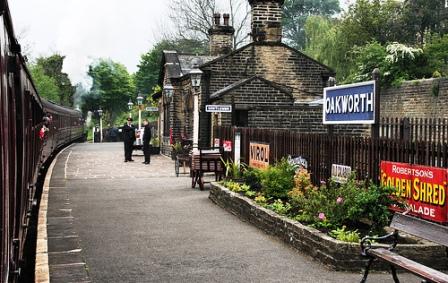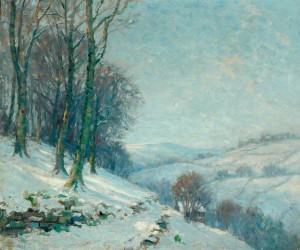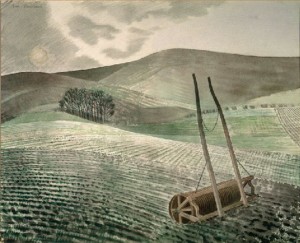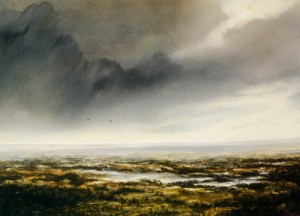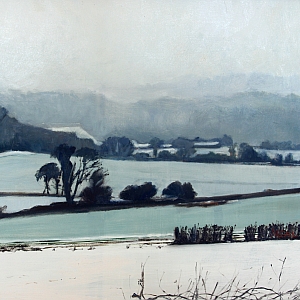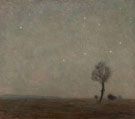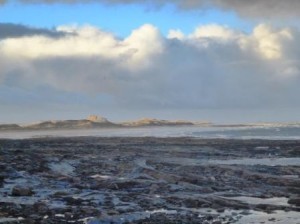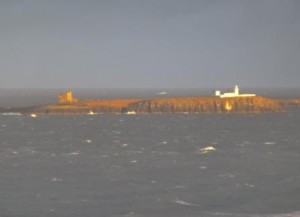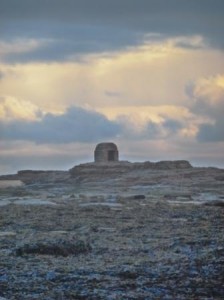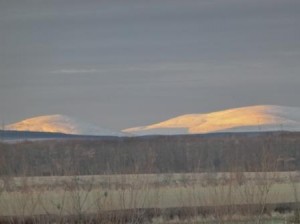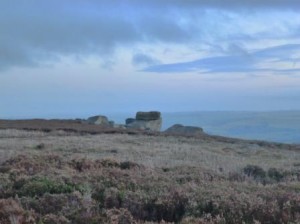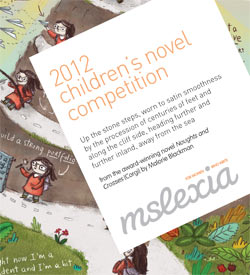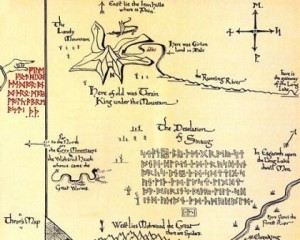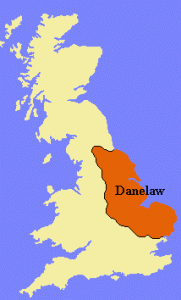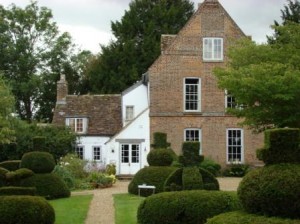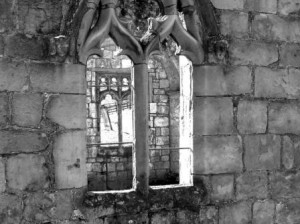 This is a tale ended in broken limpets, fractured clams and scatters of bladderwrack . . .
This is a tale ended in broken limpets, fractured clams and scatters of bladderwrack . . .
Tag Archives: Yorkshire
The Gaffer and Johnny I
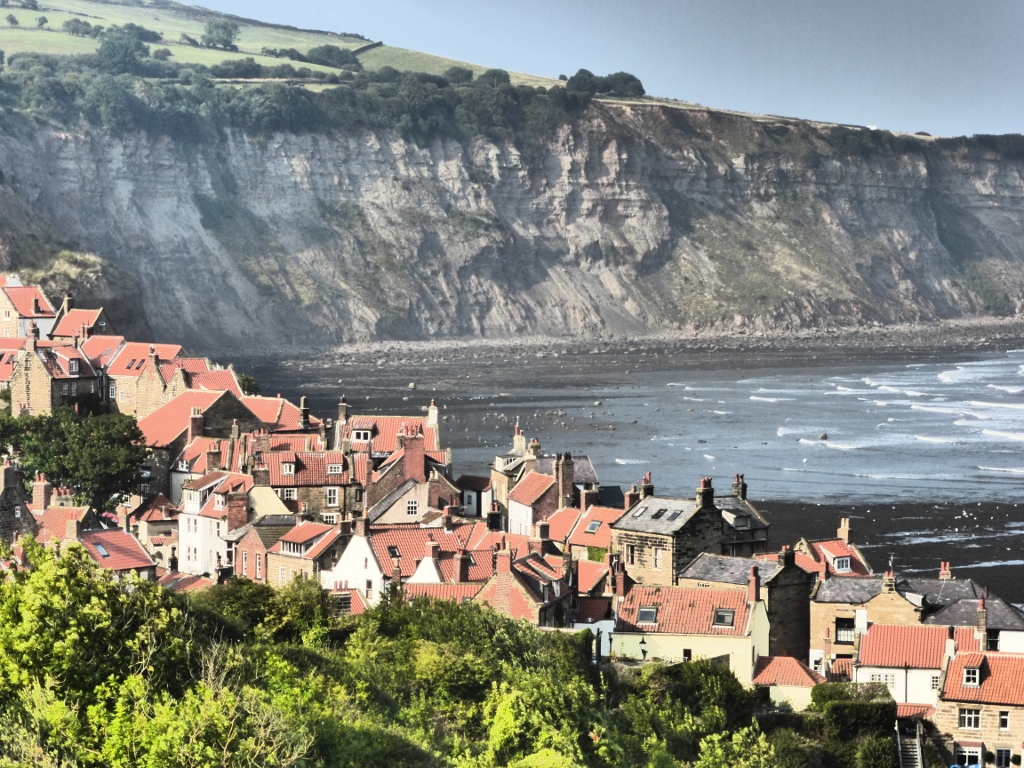 This is a tale begun in patterns of limpets clinging to scaurs in the North Sea . . .
This is a tale begun in patterns of limpets clinging to scaurs in the North Sea . . .
Change of scene, change of mind
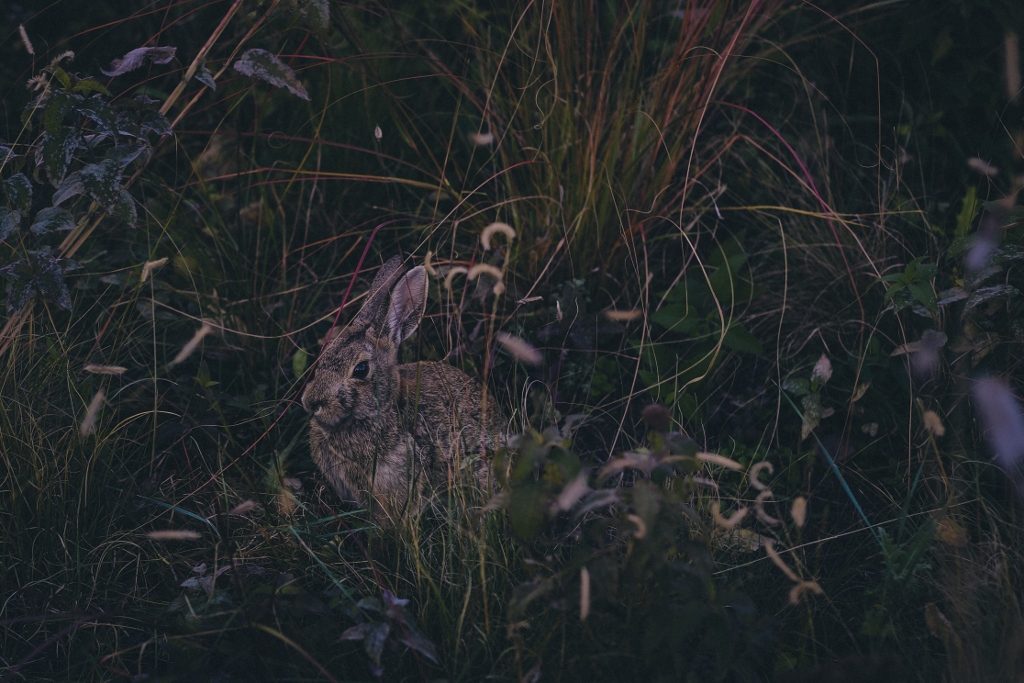
The post now waiting on Platform One…
Bolstering my faith
(A much more cheery post than the last.)
I am reflecting on the comments of my book champion (God bless her) who got ‘The Selkies of Scoresby Nab’ onto the Times/Chicken House Children’s Fiction long-list for 2012
Reasons to be cheerful – what the reader said that validated my writing:
- well-written and moving – the MA was well worth it, then
- narrative voice is incredibly strong – jump and down with delight – isn’t that what everyone say they want from a writer?
- a convincing Northern dialect – well, it is pretty much my own
- distinctive and attractive sense of place and period – I spent a lot of time there and then imaginatively at least – you won’t quite find Scoresby on a map
- Mattie undergoes a true journey of self-discovery, finding out not only who and what he is, but also what he is made of. The story has told itself well then – and that’s what makes it ‘moving’. I still can’t read a certain bit without sniffling.
Points to ponder – I’m not sure yet where these will lead me – here are some immediate thoughts:
- The lyrical, poetic quality of the writing and story may work better for girl readers. I am deeply uncomfortable with the idea of gendered books.
- With this in mind, it may be worth considering if Mattie could perhaps work better as a girl – although that could have too much of a knock-on effect on other plot points, and the relationships/friendships. She is so right about the consequences of such a change. He has been Mattie Henshaw, complete with name, from the off. I did try doing a girl version at one point – but it felt wrong. Mmmm.
- Does the period-feel work for a contemporary reader? The current challenges of selling period fiction in the children’s market would need to be considered. Sorry, but that’s not my problem. I can no more write contemporary fiction than fly. Besides, what about the sales of steampunk & gas-lamp fantasy?
- Is the story and the writing unique enough? Now that’s a biggie.
- She used ‘charming‘ twice – aaargh – I shall have to get grittier!
- I really love the feel, pace and detail in this manuscript. – I could hug her.
- The author can really write. Huzzah!
there might be possible scope for working editorially with the author to make this book the best it can be.
Ah well. I’m always up for developing my skills.
Let’s see what I can do with ‘Georgiana and the Municipal Moon‘ at The Golden Egg Academy 23rd & 24th March, then.
Snow simplifies
I’ve been visiting Art Galleries a great deal this last year- a pursuit I intend to keep up in 2013. One of the things I do there is to observe which works have an emotional appeal for me. I try, as best I can, to get over whether I ‘ought’ to like something or not, and go for the immediate heartfelt response. Recently, I have noticed I am drawn to winter landscapes.
I believe it is the plainness: the almost abstract simplification of the landscape down to its bare bones. There is not much in the way of colour to distract, and the purity of line comes through powerfully. The artworks I love manage to convey a precise place and mood through very little.
I like to believe it’s the Northernness in my soul that swells up when I see a broad expanse of pale moorland, that some flicker of Viking inheritance glows when I feel the thrill of the bleak and the bare. Truth told, I don’t want to be out there for too long – but I do love walking by the winter sea or in breezy leafless woods.
And I aspire for my writing to reflect that. Not just my love of such things – but for the stories to be strong and bold enough that they don’t need prettiness.
It’s ambitious – I am all too much of a magpie, easily seduced by the sparkly and the curious. But it’s wise to dream. To see, at least in my mind’s eye, a perfect sparse and bold image.
Which season does your writing favour? They all have their magic.
A North Country Lass
The Romans had a phrase for it: genius loci. Their protective spirit found in a specific place has now come to mean the distinctive atmosphere of a given spot. For me, these are faces of the same understanding. There are parts of this small country possessed of their own soul, their own character.
To go farther, all places have their own voices but some are so muffled, I cannot hear them well enough. Perhaps I would need more time. Surrey rarely spoke to me – the odd word on the heathlands, and an occasional whisper beside ponds and rivers.
Ah, but Northumberland! That is a land that sings.
My recent weekend near Seahouses reminded me of that glorious county’s powerful voice. The accents of the people, the strength of the great shoreline castles and the rolling force of the sea. History there is as obvious as the wrinkles on an old man’s hands. I cannot think of it without the echo of reivers, Grace Darling and the stories of Robert Westall. There’s a soundtrack too: the Keelers and the Unthanks, Kathryn Tickell, and David Almond reading his own work in his gentle lilting voice.
I love the space, the harsh honest weather. In one weekend we had gales, snow, hail and a magnificent rainbow over the Farne Isles. Each hour the weather presented a new drama.
Every time I’ve been, it has felt more real. The wheep of oystercatchers on the shore, and the friendly murmur of Cuddy Ducks. The hush of marram grass and the black outlines of winter trees against the enormous sky. Snow on the Cheviots and cheek-polishing wind. The massy stones in quay and castle and saint’s refuge.
It’s a thin place.
How strange such a physical place should be so spiritual too. But the body does not lie – and the senses bring us back to ourselves. Glamours are blown away by walks beside the North Sea, self-deceit doesn’t stand long against home-cooked food and there aren’t many airs and graces that can fend off a belted-out sea shanty.
I long for that in my writing – the things that remain, that mean something, the bits that Bede would understand and St Hilda and a kipper smoker from Craster and a little lass of ten from Alnwick. The elemental.
It’s not even my county. The people here feel like kissing cousins. I may not get all the dialect but the humour’s still there. I am teased and talked to and encouraged to sing. I’m not some fine Southern visitor treated oh-so-politely at arm’s length.
Not all pride is a sin. Love of a place can lead to creativity rather than divisive patriotism. My experience of Northumberland draws out my pride in my own homeland.
As they say:
You can take the lass out of Yorkshire,
But you can never take the Yorkshire out of the lass.
Is there a homeland in your work?
The Next Big Thing
Thanks to Jo Wyton for tagging me!
What is the working title of your book?
The Selkies of Scoresby Nab.
Where did the idea come from for the book?
I’m a scuba diver and one of the most magical things I’ve ever done was diving with seals. This rekindled my love for the Selkie legends – although I’d never come across one from Yorkshire. So I decided to create one. I used the viewpoint of a boy whose mother was a seal – but who did not know.
What genre does your book fall under?
It’s a children’s historical fantasy. (It makes me feel ancient to call the Sixties history – but they are to ten-year-olds!)
Which actors would you choose to play your characters in a film version?
I think it would be have to be animated. I’d love actors with convincing Yorkshire accents to do the voice overs, mind you. Dame Judi Dench would do a fine Grandma and Sir Patrick Stewart, Granddad. But the central younger characters would be better off as complete unknowns.
What is a one-sentence synopsis of your book?
When troublesome Mattie Henshaw is sent to his grandparents’ house on Scoresby Nab, he doesn’t expect to discover a sea-going family he never knew he had, or to have to save them from slaughter.
Will your book be self-published or represented by an agency?
I don’t have an agent – yet. It has been long-listed for the Mslexia Children’s Novel Competition 2012, though.
How long did it take you to write the first draft of your manuscript?
I wrote the first draft as the main work in my MA in Creative Writing from West Dean College which I finished in one year ( 2011)
What other books would you compare this story to within your genre?
I think it’s unique. It has a distinct Northern voice – so you might be reminded of David Almond‘ s writing or ‘Kes’, and there are magical parts that might make you think of Katherine Langrish‘s work or Pat Walsh‘s.
Who inspired you to write this book?
My amazing taskmaster of an MA tutor, Greg Mosse ( yes, he is husband to Kate Mosse) and way back in history, my old English mistress, Miss Grey – who believed in me.
What else about your book might pique the reader’s interest?
If they have ever wanted to swim like a seal , or enjoyed the magic of the sea, then this is a book for them.
NOTE
I haven’t got anyone else to tag – would you like a go? Please?
The naming of places
Like Terry Pratchett, I was blown away on first reading Tolkien:
It’s got maps! And names!*
I am still in love with his entire lexicon and mythology of Middle Earth, and one of my favourite features was the names he gave places. Now it helps if you are an expert in Anglo-Saxon and all-round-brilliant, but still I aspire to have towns, harbours, moors and rivers that convince. The place is a central character for me.
As most of my readers will know, I was born and brought up in the West Riding of Yorkshire. Norse words are part of my cultural DNA. Give me tofts and thorpes , skels and scars, and I’m a happy woman. I suppose I could set all my work in the Danelaw – but I might like to branch out.
Now since I write stories with more than a touch of fantasy, I could just make it up. But that seems like selling the reader short. I have to confess a more-than-reasonable dislike for place names made up out of real words with different meanings ‘because they sound good’. Call me a nerd, but I like a bit of toponymic integrity. If it’s set in the Fenland, I want names like Penny Soakey, Toseland St. Agnes and Green Knowe (thank you, L. M. Boston).
One approach I use is to blend existing names: I took Sel (seal) from Selsey and –chester (southern variant for ‘Roman settlement’) from Chichester to create Selchester, my City-on-the-Sea. I still like to be careful about origins (no Pictish elements with those from the Jutes for example – like mixing Aberdeen with Canterbury) but it works.
Another way is to recycle the names of abandoned or lost settlements – those places deserted after the Black Death, or victim to coastal erosion. There are a great deal of powerful story backgrounds here too.
You can also look up old maps and use the alternative spellings or earlier forms of places. The Domesday Book is brilliant for that, and zoomable old OS cartography is a wonderful time sink, I have to admit. There are cracking books too: Caroline Taggart’s The Book of English Place Names and the splendidly browseable McKie’s Gazetteer ( which gives any number of odd stories).
And if nothing else, all this research will give you a smile when you come across delights such as Wetwang, Triangle, Great Fryup Dale, Booze (with no pub) and Blubberhouses Moor (all in Yorkshire).
* this may be apocryphal – but it’s too good not to use.
Reading material
This post owes its parentage to Vanessa Harbour on ‘The importance of reading as a writer’ and Maureen Lynas’s writing about an approach to structure. I thank them both for getting me thinking about what I read and how it affects my writing.
One notable feature of the MA at West Dean was the challenge of reading in new genres. Without that I would never have discovered the emotional intensity of ‘A Quiet Belief in Angels’ by R. J. Ellory or to be honest ,the complex and satisfying structures used by Agatha Christie & Ngaio Marsh. I didn’t ‘do’ crime fiction before. It’s taught me to be an even wider ranging reader.
Now I enjoy being sent books by Vivienne Da Costa for Serendipity Reviews. There are joys like the sheer delight of seeing a much-liked author Chris Priestley come into his own – really using his deep knowledge to create ‘Mister Creecher’. Or the pleasure of reviewing a colleague’s debut novel like ‘Slated’ by Teri Terry.
I am sent different age-ranges and genres – this helps me to see what I admire, and also what I don’t want to write.
Greg Mosse insists students understand that it’s not what we like in a Reading-Group-glass-of-wine-and-nibbles way that matters, but what works. To my family’s annoyance during the MA year I couldn’t watch anything without taking it apart to see the gears and cogs. I keep quiet now – but I’m still anatomising in my head.
And yet…
It’s not just that, however useful. It’s about inspiration. The things that make me want to write.
This will sound cringeworthy but it is true: I want to pay it forward.
I want to take readers to new worlds.
I loved Narnia and Earthsea and Pern and Middle Earth ( yes I know -it’s our world millenia ago). How wonderful to transport other people somewhere special.
I want to speak with my own voice.
I can hear writers like David Almond and Robert Westall, and Leon Garfield and Joan Aiken. They taught me I can be myself, Northern vowels and all. That you can use language to give flavour and identity. I want to share that.
I want to revel in reworked tradition.
I think of Alan Garner, George Mackay Brown Lloyd Alexander, Susan Cooper and nowadays Katherine Langrish, Jackie Morris and Pat Walsh. They develop shared folklore, myth and legend and keep it alive. It’s too good not to pass on.
I want to express my delight in transformation.
Books move me far more than cinema or TV, they always have done. I can never forget the change in Mary Lennox in ‘The Secret Garden’, or Eustace Clarence Scrubb in ‘The Voyage of the Dawn Treader’. And I’m still a soppy date about Scrooge & Silas Marner. Who wouldn’t want to show what people can become?
So, in short, I think you have to read and read and read to be even a halfway decent writer. Or at least I do.
How about you?

